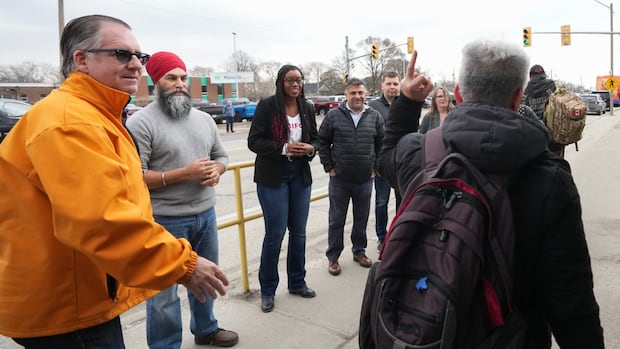A year ago, Jagmeet Singh, the former leader of the New Democratic Party (NDP), emphasized in his Labor Day message the party’s commitment to supporting Canadian workers and unions. However, during the federal election six months later, Singh’s attempt to connect with auto plant workers in Windsor, Ontario, following news of auto tariffs imposed by U.S. President Donald Trump, did not go as planned. Many workers either ignored him or expressed support for the Conservative Party and its leader, Pierre Poilievre, signaling a shift in union voters’ allegiance away from the NDP.
The election results were disappointing for the NDP, as they were completely shut out of Ontario, including key union-heavy ridings in cities like Hamilton and Windsor. This outcome underscored a significant change in Canada’s political landscape, where the NDP can no longer rely on unwavering support from labor unions and workers.
According to former Canadian Labour Congress president Sen. Hassan Yussuff, there are approximately four million unionized workers in Canada, and political parties are increasingly recognizing their influence. Yussuff highlighted the evolving policies of both the Liberal and Conservative parties towards organized labor over the past decade, acknowledging that the NDP has lost touch with its original roots.
Interim NDP Leader Don Davies acknowledged the party’s need to re-establish connections with workers and return to its foundational purpose of amplifying workers’ voices on the federal stage. While the NDP received endorsements from major labor groups, these did not always translate into member support, with the Conservatives making inroads among union voters in manufacturing towns.
Amanda Galbraith, a Conservative strategist, pointed out the efforts of politicians like Ontario Premier Doug Ford and former Conservative leader Erin O’Toole in appealing to working-class voters. She noted the Conservative Party’s shift away from being solely associated with big business to broaden its appeal to voters.
Steven High, a history professor at Concordia University, highlighted the rise of right-wing populism and its impact on the political landscape in Canada and globally. He noted that voters without higher education have been gravitating towards right-wing parties, with the Conservatives making gains in working-class areas. High also mentioned the influence of Trump’s tariff policies on the last election’s outcomes.
In response to these shifts, Charlie Angus, a longtime NDP MP, emphasized the need for the party and organized labor to reassess their relationship. Angus noted a mutual tendency to take each other for granted and stressed the importance of realigning with the NDP’s original mission of representing the working class effectively.



